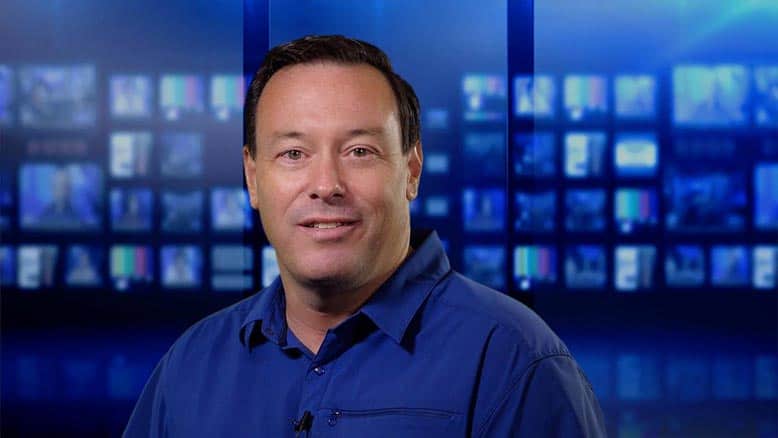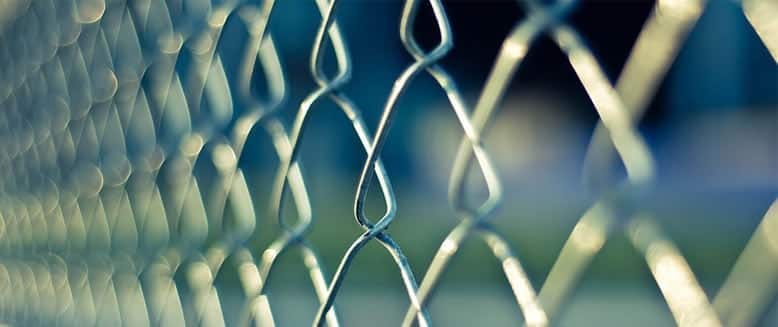They had A.A. meetings at Leavenworth, but they were weird.
The prison saw the H & I volunteers from the local A.A. district as a security risk, so they wouldn’t let them in. Over the years, without guidance, the meetings devolved into something I could hardly recognize. They never read How It Works. They never celebrated sobriety milestones or welcomed the newcomer (although that would have been hard since a stern, cross-armed guard darkened the doorway every ten minutes to make sure we weren’t escaping). Rather than the customary, “My name is Bob and I’m an alcoholic,” several members had taken to saying, “My name is Bob and I’m still in discovery.”
Still in discovery? I thought. Have you taken a look around you recently? A guy holds a shotgun over your head as you eat your Cheerios every morning. What more do you need to discover? What vital piece of information is missing from your calculation?
I tried not to take anyone’s inventory. I had my own problems. Despite all of that evidence around me – the guards, the bars, the chains – the reminders of all that I had lost due to my addiction, I still wanted to use drugs. I had recently discovered cocaine and my further experimentation into its promise had been rudely cut short by my arrest and court-martial. Cokus interruptus. But I thought about it all the time, my affection undiminished. And I knew if they let me out, I would pick up right where I left off. Remembrances protruded into my consciousness: the smell of it, the motel rooms where I used it, the Harbor Boulevard exit off the I-5 where I procured it. Images. Emotions. My ears rang. My stomach tightened. My heart pounded in my chest. The thought of never feeling that feeling again was intolerable – oddly emotionally so.
I knew that this was the classic, definitional symptom of addiction: persistent use despite negative consequences. The disconnect between that pure, crystalline powder and the thought of a life of repeated prison terms was horrifying – but also fascinating. What was this? What was going on in my brain such that the threat of future punishment wouldn’t stop me from relapsing?
After pouring over what journal articles on the neuroscience of addiction I could get sent to the prison, one answer appeared: addiction is a disorder in valuation. Of course! It’s not that addicts don’t have values. It’s that the valuation process in the brain assigns too much of it to drugs. This just seems so profoundly obvious that I came to find the question, “Why don’t they stop?” annoying. The brain’s capacity of valuation is up-ended, and valuation is a key component of volition – choice, free will, agency, whatever you want to call it.
But there’s more to it – and the second part of the answer is not as obvious. Addiction is also a disorder in another very important component of choice: my ability to correctly calculate probability. I know, weird, huh? My capacity for choice is very much dependent on my relationship to the future: how I imagine it, what value it holds, and how I guess it’s’ likelihood of coming true. In short: as an addict, my ability to assess risk – the uncertainty of future losses – is shot.
The brain is a Bayesian calculator. I’ve never had a head for numbers and I understand statistics imperfectly, but the best description I’ve heard of Bayesian inference is this: imagine yourself on that game show Let’s Make A Deal. Imagine that Monty Hall (the host of my generation), or Wayne Brady (for Millennials), picks you as a contestant (known as a “trader” in the show’s vernacular). You have to choose between three doors: behind one is a new car (!), and behind the other two is a goat (a “zonk” – again, in the parlance of the show). You have a one in three chance of getting the car. You decide to pick door Number Two, but before you can act Monty, or Wayne, reveals what’s behind door Number One. It’s a goat. Bayesian inference asks this: should you change your choice?
The answer is yes, however counter-intuitive or inconsequential it may seem.
The reasoning goes like this: when you chose door Number Two the likelihood of being right was 33%. Now, with new information, the likelihood is 50%. The updated odds are much better, so it’s best to start over – even if you re-choose door Number Two.
The brain goes through the same process, but imagine it happening thousands of times, each second of every day. As I start out in my decision-making process, I calculate the value and probability of using cocaine. I don’t want to do it – it’s too risky. But as I get closer to the point where I could actually execute the decision, anticipation grows and new information comes in – the tremendous salience I give to cocaine, the powerful cues that trigger my search for cocaine, the emotions re-ignited at the thought of using cocaine. This information biases my decision-making toward choosing to use cocaine; even the small decisions that don’t seem to involve cocaine at all point me towards it. My ability to update grinds to a halt and I become less and less able to distinguish the risky choice from the safe choice. Worst of all, I can’t tell that anything has gone wrong.
As I sat in my cell, I realized I had the classic addict thinking defect: I over-value future drug-related rewards and over-estimate the likelihood that they will work out as intended. I under-value the consequences that might result from drug use and under-estimate the likelihood that they will occur. The upshot is that I prefer immediate rewards that are, over the long run, disadvantageous to delayed rewards that are, in the long run, better for me. I have a troubled relationship with risk, and somehow I have to learn to live with it.
It is now possible to see, using functional-MRI techniques that image the brain in real time, just where this probability calculation/risk appreciation process takes place. Two areas: the Anterior Cingulate Cortex (ACC) and the Insula each do their part of the math.
The ACC is my conflict monitor. It gets upset when things don’t go together. If I make a choice and act, it feeds information back to me: “You did that wrong. Try again.” In a normal person as risk increases the ACC becomes more engaged. But for addicts, it doesn’t. The ACC drops out and updating stops even as the conflict (risk) grows.
The Insula takes in information from the body: the state of my gut, the pace of my heart all become part of the decision-making process. On fMRI, the Anterior Insula is more engaged when a normal person faces a risky choice and the Posterior Insula is more engaged when the subject faces a safe choice. In addicts facing the same choice as a normal person, the engagement of the Anterior Insula is diminished and the engagement of the Posterior Insula is heightened. This sends the message that the risky choice is safer than it really is. While other people can assess risk correctly, the addict is blind to it.
What makes this especially damning for the addict is that the capacity for correct risk calculation starts out the same as in a normal person. If you say: “Don’t hang around those friends you used to use drugs with,” I can see why that’s risky. My (future) probation officer and I are on the same page.
But as the ACC fails and the balance between the Anterior and Posterior Insula is disrupted, this process deteriorates. The risky choice and the safe choice look the same. Even the little choices that involve small amounts of risk and don’t appear to be related to drug use become skewed.
It became increasingly clear to me that when I eventually got out of prison, the decision to stay sober would be easy. I want to stay sober. I don’t want to use drugs. But that one, big choice is made up of many thousands, maybe tens of thousands, of smaller choices, each one potentially and imperceptibly biased toward continued cocaine use.
Where will I live? By myself near an area where I used to use drugs? Or in a safe, stable, recovery residence where I have good social support? My peers – who will they be? A group of other sober men? Or one girlfriend who’s struggling with her own sobriety? How will I spend my days: in a job that goes nowhere, or one with a future? All of these little choices add up. And me, with my inability to the assess risk of each little choice, could unwittingly drive my sobriety right off the road.
Once I got out, the typical thing happened: my probation officer made it clear that if I screwed up, I would go back to prison. He thought that the threat of more punishment would motivate me to stay on the right track.
My entire career in this field has been to show why that is wrong.
We put people in early recovery into terrible, precarious situations that are almost impossible to negotiate safely. The fact that so many do stay sober is a testament to human resilience in the face of terror and despair.
I think its mean. I think it’s ignorant.
It reflects a narrow and tired view of how choice actually works in the brain: turn up the punishment and the addict will stop.
I was lucky. While I continued to make quite a few bad choices, I had other things that buffered them. I had the benefit of brain healing time (although I think there are less dangerous ways than instead of prison to get that). I had the benefit of treatment. Before I went to prison, I went to A.A. meetings. It turns out that “pretreatment” by attending A.A. meetings has been shown to predict a more favorable opinion of A.A. upon treatment completion. A.A. connected me to peers who knew how to stay sober (I still didn’t). I lived in a safe, stable recovery residence. I was able to work, first at Starbuck’s (I lasted one day), then at a local treatment center. This gave me two things: it kept me busy and maintained my identity as a (non-practicing) doctor. Each of these little choices made sticking to the one big choice easier. After five years, I graduated probation.
The impairment in correctly assessing risk is frightening. There is one thing it can provide, though: it gives us hope – maybe mistakenly calculated, but hope nonetheless. I always marvel at my disease and how my brain came apart, just as I marvel at recovery and how my brain comes back together. I don’t know where this process will eventually lead me.
I guess I’m still in discovery.
About Kevin McCauley

Kevin McCauley is a graduate of Drexel University’s College of Medicine and has previously served as a U.S. Naval Flight Surgeon. He has worked in the field of addiction treatment for nearly two decades, serving as director of various treatment programs and is the co-founder of Institute for Addiction Study. His documentary, Pleasure Unwoven which received the 2010 NAATP Michael Q. Ford Journalism Award.
McCauley conducts lectures across North America, Europe and Australia, educating families on the Neuroscience of addiction and effective treatment methods. He advocates for rights of people in recovery as patients and treatment-based alternatives to punishment. He currently resides in Honolulu, Hawaii with his wife and son.
References
Zhu X, Sundby K, Bjork JM, Momenan R. Alcohol dependence and altered engagement of brain networks in risky decisions. Front. Hum. Neurosci (2016); 10:142.
Author
-

President, CEO & Founder at Northbound Treatment Network
Paul Alexander is the CEO, President & Founder of Northbound Treatment Network in Newport Beach, California. He believes wholeheartedly in transformational leadership, organizational health and effective, fully integrated substance use disorder and mental health treatment. With over 27 years of experience in behavioral healthcare, Paul has extensive knowledge of “in vivo” treatment modalities, clinical development, operations, strategy, marketing and financial planning. He has been widely recognized for his development of collegiate-based residential treatment programs for students in recovery and authored a research study at The University of California confirming this modality’s effectiveness.
Paul’s comprehensive professional experience, willingness to innovate, and emphasis on organizational health are vital factors in Northbound’s continued success. Paul received his Certified Addiction Treatment Specialist training at Saddleback College in Mission Viejo, CA, and was awarded Outstanding Alumni Service Award in 2002. Paul holds a Bachelor of Arts degree in Criminology, Law and Society, Summa Cum Laude, from University of California, Irvine, and a Juris Doctorate degree from Loyola Law School of Los Angeles. Paul currently serves on The National Association of Addiction Treatment Providers (NAATP) board. In addition, he serves on The Family Recovery Foundation board and The CarePossible board in Orange County; both organizations are committed to raising funds for family recovery and treatment for former military personnel. Paul is in recovery himself and lives in Orange County with his wife Silvana and his two young sons, Noah and Dean.










